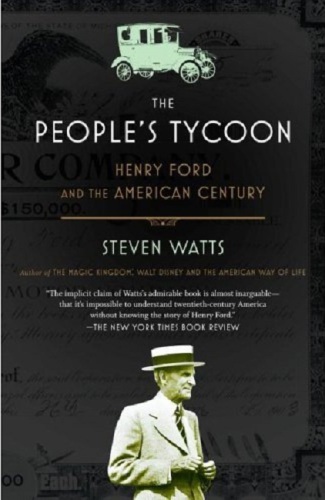

Most ebook files are in PDF format, so you can easily read them using various software such as Foxit Reader or directly on the Google Chrome browser.
Some ebook files are released by publishers in other formats such as .awz, .mobi, .epub, .fb2, etc. You may need to install specific software to read these formats on mobile/PC, such as Calibre.
Please read the tutorial at this link: https://ebookbell.com/faq
We offer FREE conversion to the popular formats you request; however, this may take some time. Therefore, right after payment, please email us, and we will try to provide the service as quickly as possible.
For some exceptional file formats or broken links (if any), please refrain from opening any disputes. Instead, email us first, and we will try to assist within a maximum of 6 hours.
EbookBell Team

0.0
0 reviews
Ford was the entrepreneur who first made the automobile affordable but who grew skeptical of consumerism s corrosive impact on moral values, an employer who insisted on a living wage for his workers but stridently opposed unions, who established the assembly line but worried about its effect on the work ethic, who welcomed African Americans to his company in the age of Jim Crow but was a rabid anti-Semite. He was the private man who had a warm, loving marriage while siring a son with a mistress; a father who drove his heir, Edsel, so relentlessly that it contributed to his early death; a folksy social philosopher and at one time, perhaps, the most popular figure in America, who treated his workers so harshly that they turned against him; creator of the largest, most sophisticated factory in the world who preferred spending time in his elaborate re-creation of a nineteenth-century village; and the greatest businessman of his age who haplessly lost control of his own company in his declining years.
Watts poignantly shows us how a Michigan farm boy from modest circumstances emerged as one of America s richest men and one of its first mass-culture celebrities, one who became a folk hero to millions of ordinary citizens because of his support of high wages and material abundance for everyday workers and yet also excited the admiration of figures as diverse as Vladimir Lenin and Adolf Hitler, John D. Rockefeller and Woodrow Wilson.
Disclosing the man behind the myth and situating his achievements and controversies firmly within the context of early twentieth-century America, Watts has given us a comprehensive, illuminating biography of an American icon.